Croatian Healthcare Workers: Christmas's Forgotten Heroes?
December 28, 2020 – Amidst the difficulties of a second lockdown, a socially distanced Christmas and yet more earthquakes, have we forgotten about Croatian healthcare workers? TCN decided to interview a doctor working on the front line of the fight against COVID
During the first lockdown, it was all about the balconies. Saxophonists, DJs, opera singers – we were entertained on social media by a string of balcony-based stunts that somehow showed resilience, community spirit, humour. Zagreb was no exception. A trend of clapping on balconies in appreciation of healthcare workers passed from country to country and was picked up in Zagreb. After the applause finished, people went back inside. Nothing much had changed. It was a nice enough gesture.
Since the start of summer, no such applause has been heard. Perhaps the release from lockdown gave the signal that the lives of Croatian healthcare workers had also become much easier? That certainly wasn't the case. Though the number of people infected with COVID has grown significantly over recent weeks, Croatian healthcare workers have been treating people sick with COVID since springtime.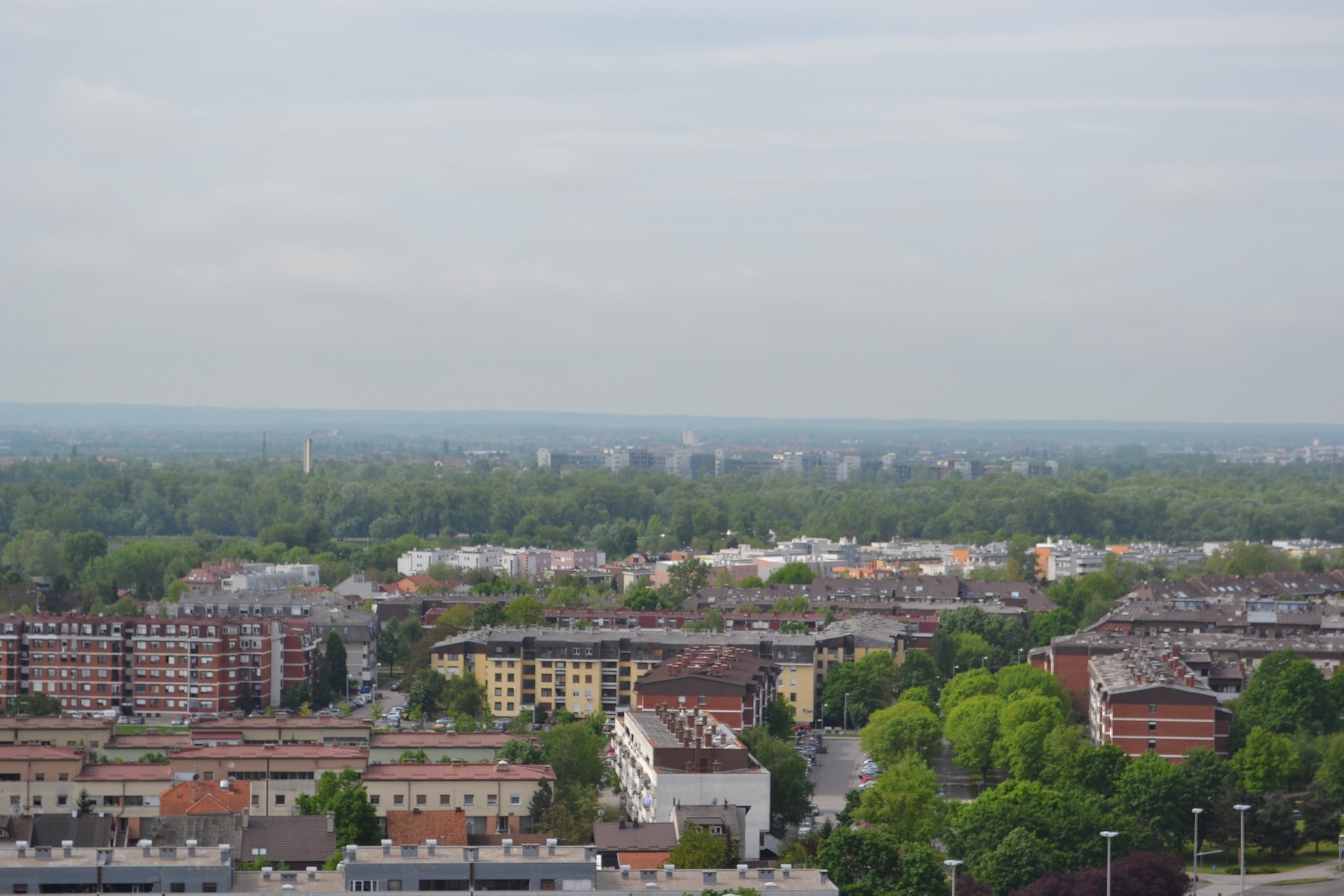
Croatian healthcare workers are currently busier with COVID patients than at any time before. And yet, there are no more trips out onto the balconies to show our appreciation for them. Perhaps it's now too cold outside? Perhaps some aren't aware how busy Croatian healthcare workers currently are with COVID patients? Are we perhaps guilty of taking Croatian healthcare workers for granted? Or, maybe we have simply put Croatian healthcare workers to the back of our minds as we struggle with our own challenges?
Throughout this year, TCN has been pleased to report many instances of generosity and innovation directed towards the fight against COVID. Certainly, not everyone in the country is guilty of forgetting about the Croatian healthcare workers who are on the front line fighting this disease. But, how much impact do these instances have on the general lives of Croatian healthcare workers? What is it like to no longer hear the nightly appreciation from our balconies? And, just what is life like as one of the many Croatian healthcare workers battling COVID in the year of the pandemic? TCN decided to interview one to find out.
The doctor we spoke with is a resident physician, working at a smaller community hospital in the continental part of Croatia. They agreed to speak with us on the condition that they do so anonymously.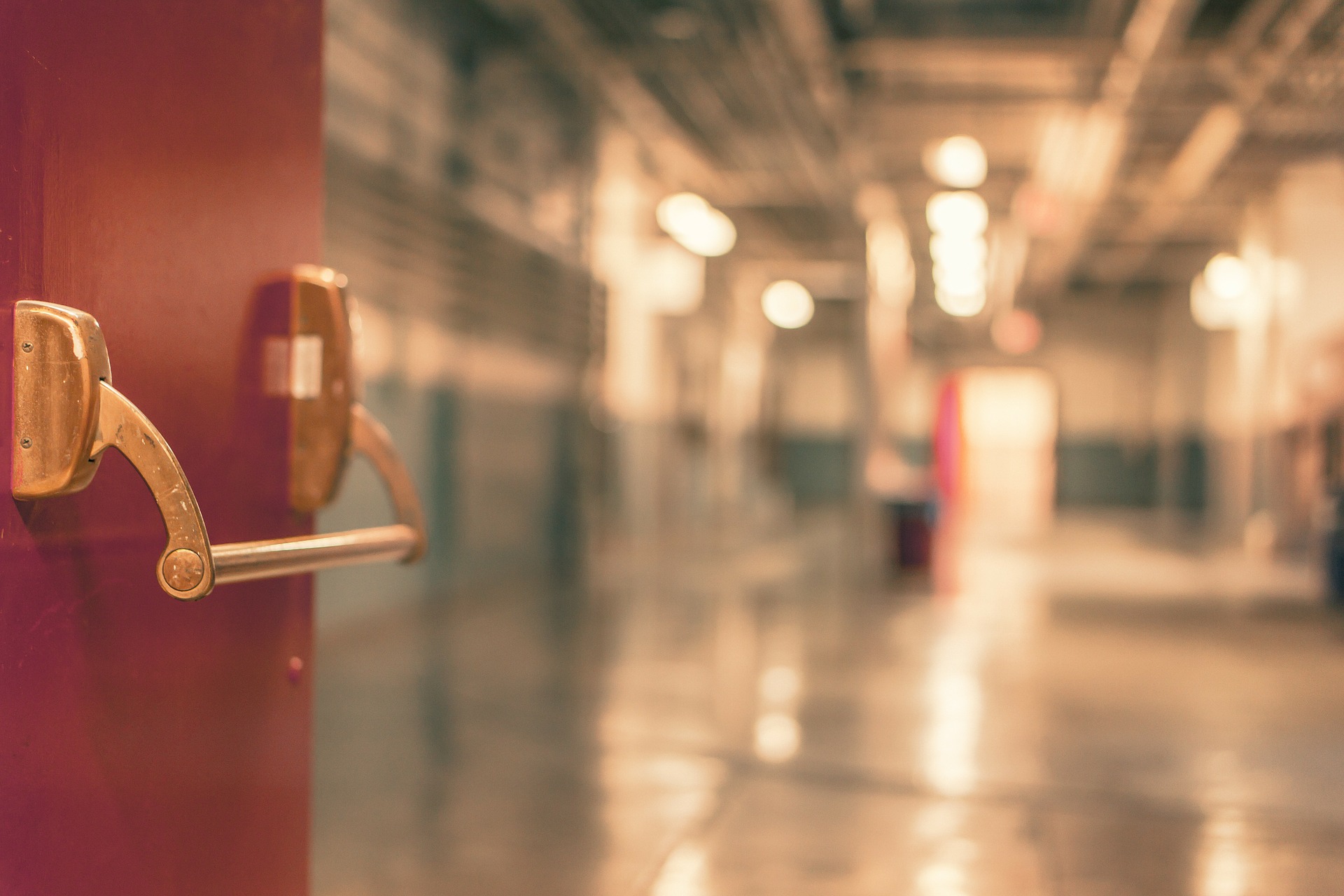
Looking back at the first lockdown, we didn't know so much about COVID back then. We didn't know exactly how it was spread, the different manifestations of the disease, what course the disease took, nor what the recovery could be like. I think the government did a really good job of responding to the threat as they saw it. We had a small spike in cases, but that is minuscule to what we have now.
I think people generally did what they were told because they thought it would be temporary and they could see the sense in starving the disease out.
At the hospital, we were at first caught a little off guard with the amount of PPE we had and some other resources that we needed. For ICU and ventilators, we were well equipped.
Some of the residents were given some paid leave. It was important to put human resources into tiers. Croatian healthcare workers were certainly more predisposed to catching the disease, simply because they were around it every day.
After such great early successes, I was surprised that everything was relaxed later on to allow the tourist season to take place how it did, and for events like the Vukovar commemoration. It felt like it was a calculated risk. The lockdown we are now in is perhaps too little, too late. The disease is out there now, wild. The numbers of infected people are significantly higher.
The difficulty with this disease is that people can be infected and have very few or no symptoms at all. They might not know they are spreading the virus. You might not know you're sitting next to someone who has it.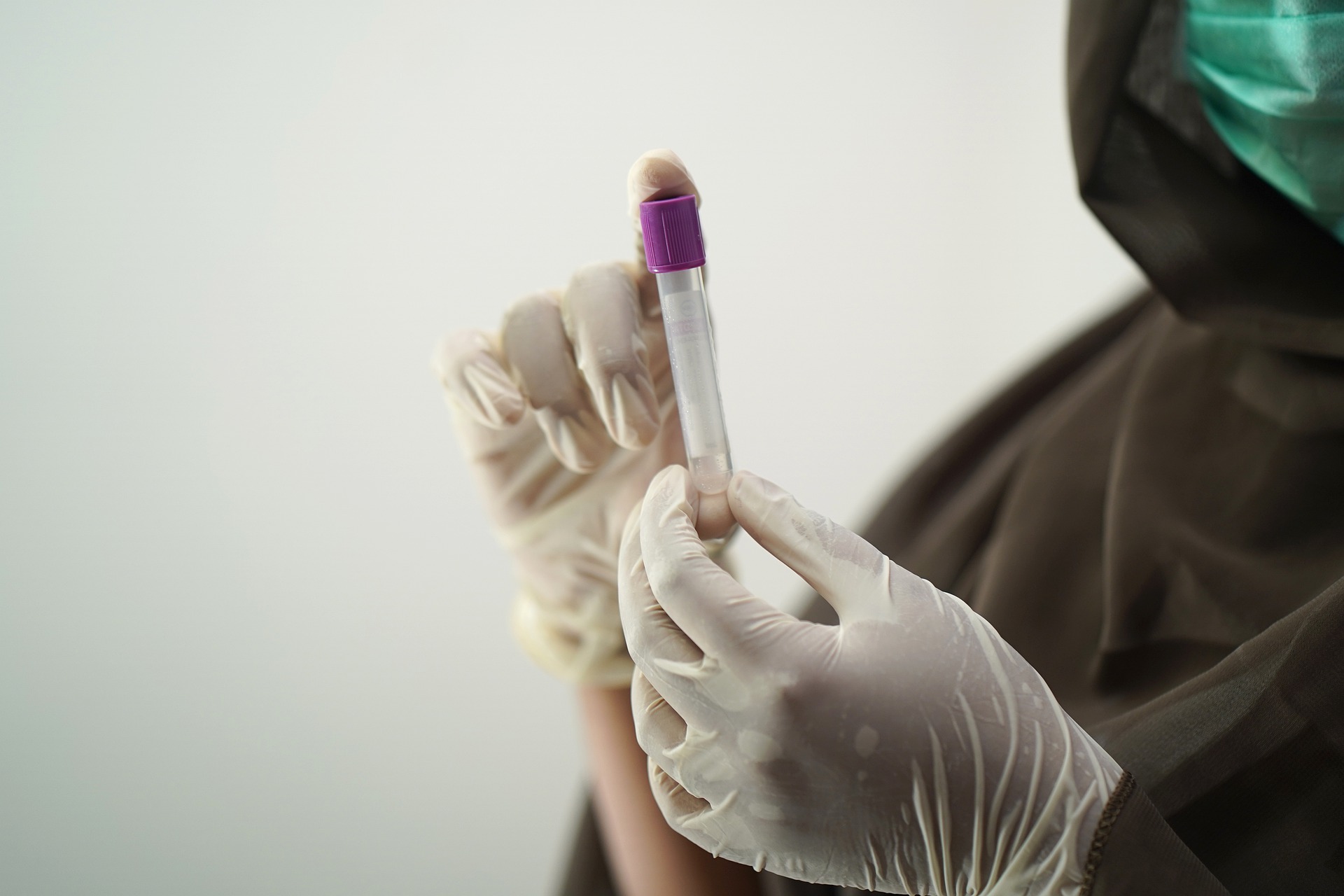
Even though we're not at the centre of care for a major population area or city, we saw cases of the disease almost immediately. Our community hospital services an area containing around 150, 000 people. The first cases in April came from nursing homes – elderly, vulnerable people, many with pre-existing conditions. We were well equipped to handle it. Now, we are stretched on a daily basis. We fill the beds with sick people as soon as we empty them.
We wear masks and PPE all day, all the time. All Croatian healthcare workers in hospitals currently do this. Every patient who comes in, regardless of their symptoms, we treat them as though they are carrying the disease.
A lot of residents like me, who are working towards getting their specialty, go to do some periods of work in larger hospitals in the bigger cities. Now, many of those residents have been called back to their community hospitals – we are short on human resources.
The hospital has had to restructure itself significantly. Lots of doctors have been asked to provide cover in the emergency department. Over half of that area is now fully dedicated to COVID.
What do COVID patients look like in regards to their symptoms? It depends on their age and risk group, but you see people who look like they have flu or bacterial pneumonia, you see people who are in acute respiratory distress. Sometimes they have neurological changes, some of them look like they have had a stroke. Some people who have been infected and have supposedly got over the worst of the symptoms, come back in after a month or two with blood clotting problems – blood clots in the legs, which have a tendency to travel up to the lungs and cause a pulmonary embolism. That's a pretty big medical emergency. Some who have pre-existing heart conditions come in with a heart attack triggered by them catching COVID – it's more complicated trying to revive someone when you know they have COVID. The presentation of the disease is so variable.
It's not only older people. I've seen young people be admitted with serious reactions to COVID - young, healthy people who have no pre-existing conditions. I've seen young people come in with mild symptoms, they are sent home with antibiotics and steroids. That is the standard treatment – antibiotics to prevent a bacterial super-infection and steroids to prevent an acute reaction by the body's immune system to COVID. - that's what can cause big problems later on, in the course of the illness. But, sometimes that's not enough. I had a young patient just last week - super healthy, worked out regularly, no pre-existing conditions – and his lungs just looked awful. He had to go to the ICU immediately (sadly, this patient later died). That's like no disease I've ever seen before. Really, COVID is a completely new kind of animal.
The new strain of COVID? There is evidence that it can be spread more easily, and that it can affect more younger people, but there is no evidence that it is any more severe. The vaccines will work against it.
We're short on ventilators now. Really, we need two free ventilators at any time, in case there is an emergency admission. We are not currently in the position where we always have two free ventilators – sometimes they are all in use. That's a worry. I worked one shift where the anaesthesiologist said “We just don't have any more space for them – we will just have to put them in the hallway”. I've never seen that before.
I've heard of Croatian healthcare workers, colleagues in other hospitals getting sick with COVID and the hospital asks them to prove they got sick at work. It's pretty clear that's the most likely place they would have got sick because they're working with COVID patients. They were forced to be off work, but only on a lower level of sick pay. If you get ill because of being at work, you get full pay. But, they couldn't prove it, so they didn't get that.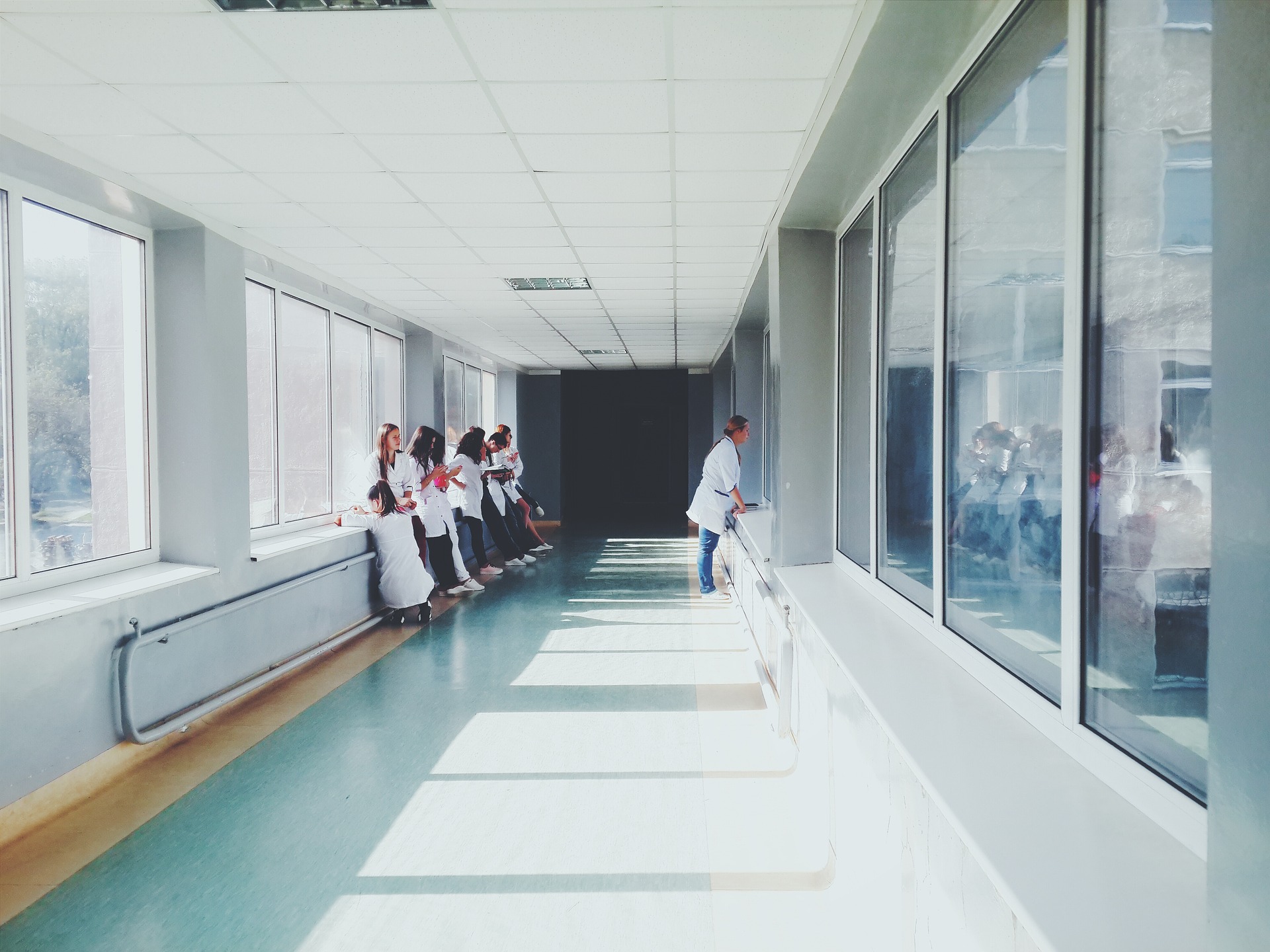
I've been lucky – I haven't caught COVID yet. Well, as far as I know. My pay hasn't gone down, it's gone up – but only because I'm working so many double shifts. I volunteer to provide cover when other members of staff get sick. The specialists – the consultant doctors – they have it worse than us resident doctors. They are more responsible, so they are expected to work more hours. Nobody is pressured or threatened into picking up extra shifts, it's just something that almost all of us just do.
I've read some nice stories about fundraising efforts and donations to Croatian healthcare workers and hospitals in different parts of the country. Everything is appreciated. But, I personally haven't seen any effect of that on our day to day lives at work. Not at our hospital. Maybe there were PPE donations or cash donations, but it hasn't impacted the daily lives of me and the Croatian healthcare workers who are my colleagues. I think I heard that a local garage was giving free cups of coffee if you show your medical ID. Every little is appreciated.
For me and the Croatian healthcare workers who are my colleagues, instead of any kind of personal discounts or donations to staff, we would much prefer if people just took this disease more seriously. Things look very different when you work in a hospital compared to someone outside who maybe doesn't know anyone who got sick.
I came off a particularly difficult double shift a couple of months ago – it was just non-stop COVID admissions, some severe cases. As I was walking home, I walked past a bar that's near to the hospital. They had signs on the walls telling people to keep their distance. But, the bar was absolutely packed – full of young people. It just felt so disappointing. I couldn't help but think of the older relatives they would come in contact with, some who might get really sick.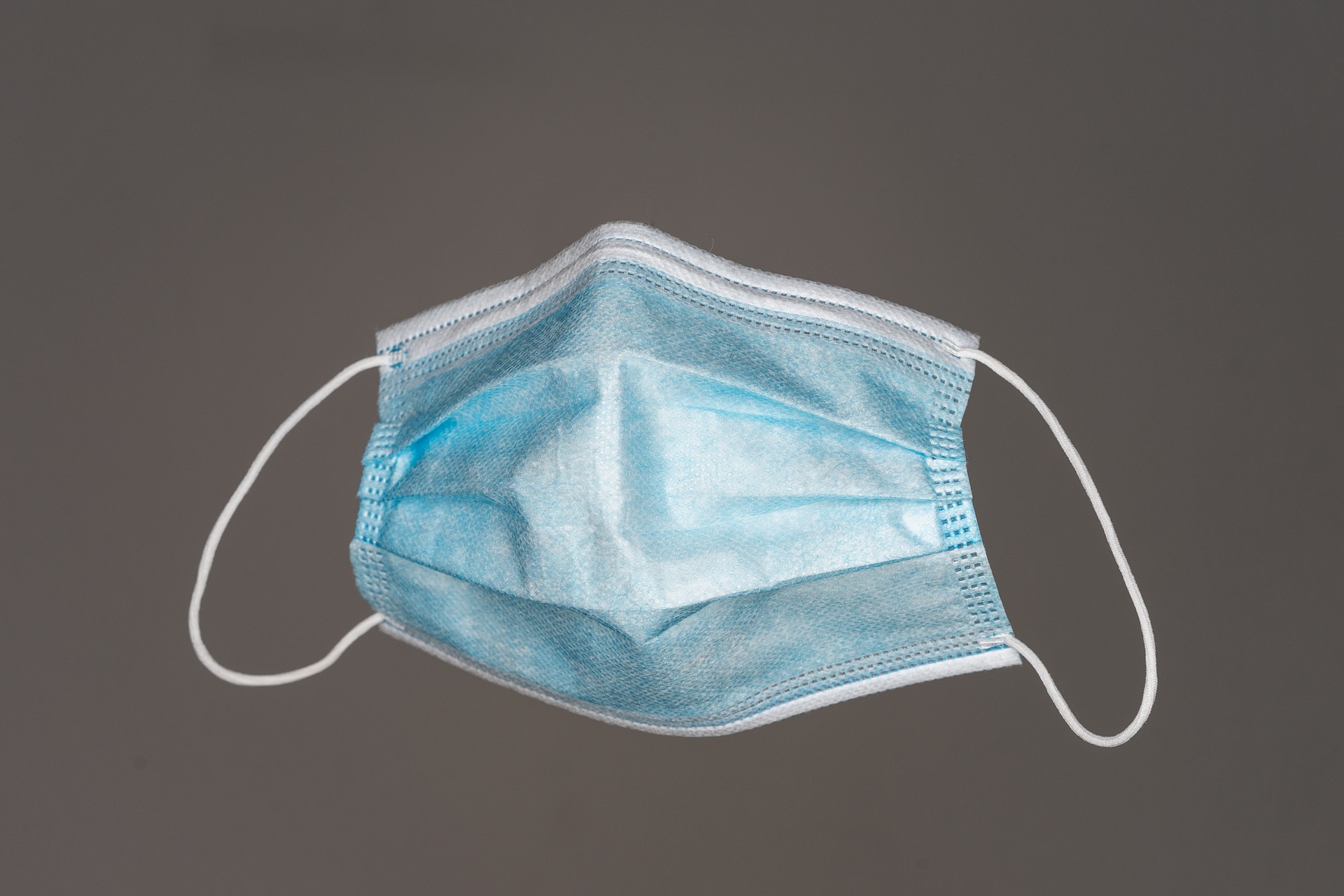
Instead of people clapping on balconies, I think Croatian healthcare workers would just prefer more general vigilance and personal responsibility – wear your mask, wash your hands regularly, no more parties in the basement. Clapping on balconies is a nice gesture, but ultimately it's an empty one.
How does it feel to know that there are some people out there, in every country, all around the world, who believe COVID is a hoax, or a plot, or not so serious, or that the vaccine is dangerous or something other than what it is?
Well, it's not always the content of the conspiracy theory that appeals to these people as much as it is their inability to accept facts – the truth – because they have little faith in the authorities that are telling them this. Here in Croatia, I think that distrust is quite high – a lot of people are disillusioned with the state and politics, because of corruption. Sometimes over 50% of the population choose not to vote. The dissemination of misinformation over social media doesn't help - if that's where people get their news from. If you look at that example from your own country, where strict measures about movement were put in place by your government, and immediately afterward, the Chief Advisor to the Prime Minister, was caught breaking them to travel across the country with his family to a second home in the countryside, going out on day trips. And he was defended by his colleagues after he was found out! When people see those kinds of things happening, the distrust between people and the authorities just grows.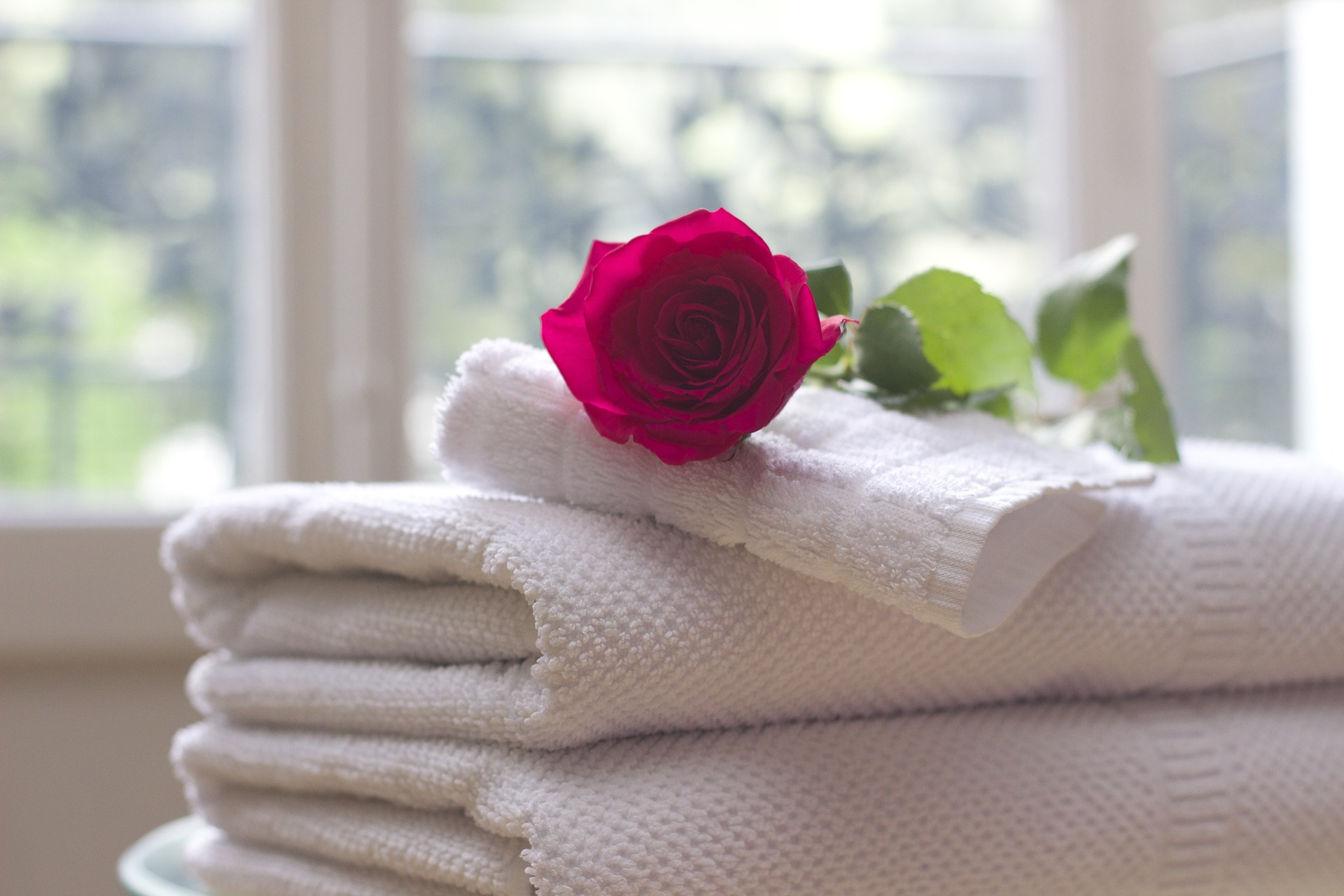
All of the images in this article are used as illustrations only. None of the places or people depicted are in Croatia or Croatian, except for the first image, a panorama of Zagreb
COVID-19 Vaccine is Safe, Says Member of Gov't Scientific Advisory Council
ZAGREB, Dec 27, 2020 - A member of the government's Scientific Advisory Council, Andreja Ambriovic Ristov, has said that the arrival of the COVID-19 vaccine in Croatia is the beginning of "the end of the abnormal situation we have been living in for ten months."
The first 9,750 doses of the Pfizer-BioNTech COVID-19 vaccine arrived in Croatia early on Saturday morning and the vaccination was set to start on Sunday.
Ambriovic Ristov, who heads the Department for Molecular Biology of Zagreb's Rudjer Boskovic Institute, said in an interview with Croatian Television on Saturday that the situation regarding the COVID-19 pandemic would not get back to normal so soon and that the dynamic of the vaccination would determine how soon herd immunity would be achieved.
It is assumed that immunity requires vaccinating 70% of the population, but there is a possibility that more people will have to get vaccinated, she added.
She noted that people should not relax too soon and that they should comply with the epidemiological restrictions in force.
"The current restrictions cannot be relaxed. They are good, the government made the right decision because two weeks ago, when they were introduced, the number of new infections started to decline. Unfortunately, the decline in hospital admissions is small but the number of fatalities is unfortunately still not going down," she said.
Ambriovic Ristov noted that one would have to live with restrictions until a majority of the population was immunised and until it became evident that the virus was circulating less in the population.
She said that it was not likely that people would be able to stop wearing face masks by autumn, but that the end was in sight.
She said that the vaccine was safe and that vaccination would not change anything in the human genome.
"We will stay as we are, the vaccine is completely safe," she said, stressing that only those with a history of more serious allergic reactions should be on guard.
Researcher: Vaccine won't yield effects before March
Researcher and molecular biologist Ivan Djikic said on Saturday that the vaccine that arrived in Croatia earlier in the day would not yield effects before March and stressed that compliance with epidemiological restrictions in January and February was essential for protection.
Expressing confidence that more than 70% of the population would get vaccinated based on positive results, he said that one should continue to be cautious because the vaccine alone would not defeat the disease.
It will take four to five weeks for the vaccine to yield a positive effect. "January and February are the months when we will have to work together to protect ourselves," he said.
The situation in Croatia regarding the epidemic is unstable, data on new infections are not reliable, the rate of testing is insufficient, he said.
"Croatia is No. 1 in terms of the growth of mortality, No. 2 in terms of the number of deaths and No. 4 in terms of pressure on hospitals. The vaccine will not yield effects before March, only our joint work will," he said, predicting that the situation will become more normal in the second half of 2021 but that life will completely get back to normal only in 2022.
PM Sure That Vast Majority of Croatians Will Be Vaccinated
ZAGREB, Dec 27, 2020 - Prime Minister Andrej Plenkovic said on Sunday that he was sure that a vast majority of Croatians would be inoculated against coronavirus in the next months, reiterating that first 9,750 doses of COVID-19 vaccine would be administered to citizens at the highest risk and front-line professionals.
"I and my Cabinet are very happy that the vaccine rollout has started in Croatia. We have made the vaccination plan which the government adopted. The plan was prepared by the Croatian Institute of Public Health, to roll out vaccines throughout all the counties," the premier said after the first person in Croatia, an 81-year-old Branka Anicic, a resident of a retirement home in Zagreb, was given a Pfizer jab on Sunday morning.
Plenkovic underscored that the first 9,750 doses would be given to citizens at the highest risk of contracting the disease and to frontline workers.
The Croatian PM expects the European Medicines Agency (EMA) to certify the COVID-19 vaccines produced by Moderna on 6 January.
Asked by the press why Croatia's state leaders were not among the first to receive the vaccine, Plenkovic explained that the first doses should be distributed to residents in old-age care homes who are high-risk groups of citizens and to front-line physicians who care for them.
There will be enough time for the demonstration of giving vaccines to (officials) that should encourage as many people as possible to get vaccinated, said Plenkovic, who recently recovered from COVID-19.
He expressed his belief in the common sense of most citizens who will get vaccinated.
COVID-19 Vaccinations in Croatia to Start on Sunday, December 27, Announces PM
December 23, 2020 - The Croatian Government has announced that COVID-19 vaccinations in Croatia will begin on Sunday.
As Index.hr reports, Prime Minister Andrej Plenković said today at the press conference in the National and University Library that the vaccination will begin on Sunday, December 27, 2020.
"Safety is based on controlled clinical trials. Vaccinations will start on December 27, and it will take place over the next few months. We want as many of our fellow citizens to be vaccinated, and preferably everyone. That is why we have a clear debate that as many people as possible decide to get vaccinated. We aim for 70 percent of our fellow citizens to be vaccinated," Plenković said, reports Večernji list.
People in nursing homes will first get vaccinated
The vaccination will be free and voluntary. The first to be vaccinated will be those at risk because of their age or illness and their type of work.
"The priority groups are health professionals who are in contact with COVID-19 patients and users of social care homes. In the second phase, the elderly and those with chronic diseases will be vaccinated. The vaccine is coming on Saturday, it will be distributed to counties on Sunday, and mostly those in nursing homes will be vaccinated," said Krunoslav Capak, director of the Croatian Institute of Public Health.
Only the documentation content has changed, so now pregnant women and those who are planning to become pregnant can be vaccinated. There is no evidence that the vaccine acts on the fetus and pregnancy.
"We entered the negotiations on vaccine procurement with a timely response from the Government. We are a small market for large companies, and we often have problems with regular supply. We have secured maximum quantities of vaccines. When everyone gets the vaccine, we will get it too. That will happen on Saturday," Capak said.
Campaign 'Think of others, get vaccinated'
The Croatian Government has so far ordered 5,905,000 doses of the vaccine, of which one million from Pfizer, over two million from AstraZeneca, one million from Moderna, 900,000 from Johnson&Johnson, and 300,000 from CureVac.
Prime Minister Plenković said the vaccination plan's success depends on how many people will want to be vaccinated. He called on all media outlets to join the campaign under the slogan, "Think of others, get vaccinated."
"The Croatian Institute of Public Health has launched a campaign to promote vaccination. This is a key message. The arrival of the vaccine is an encouraging message, a message that gives hope for the normalization of life, social, and economic activities," Plenković explained. "This is an unprecedented crisis that has changed the world," he added.
Plenković said there is a loud but small group of people who oppose vaccination, but that there are many more people who want to be vaccinated than the vaccines that will come in the first tranche. Capak added that there would be enough vaccines for everyone.
"The arrival of the vaccine is a hope for the future. This is the moment when we come to the situation that by the end of March, we have about 270,000 doses of vaccine," Plenković said.
To read more about coronavirus in Croatia, follow TCN's dedicated page.
Krunoslav Capak Reveals Latest COVID-19 Vaccination Plan in Croatia
December 16, 2020 - The latest on the COVID-19 vaccination plan in Croatia, as revealed by Krunoslav Capak of the Croatian Institute of Public Health.
Jutarnji List reports that although the European Medicines Agency (EMA) has announced that approval for the use of Pfizer and BioNTech's coronavirus vaccine could arrive by December 29, the German Bild reports that this could happen as early as December 23. On the other hand, the Germans say that in that case, vaccination in that country could start the day after Christmas, more precisely, on December 26. Given that the European Commission has announced in the vaccination plan that all EU countries, after the EMA has the last word, will receive the vaccine simultaneously, this would mean that Croatia could start with the first vaccinations on December 26 or 28.
Namely, BioNTech reported that the delivery of vaccines from the factory and the primary European distribution center of Pfizer's vaccine in Puurs, Belgium, can start as soon as the green light from the EMA and the EC arrives. The date by which the EMA could give the green light was indirectly confirmed at a press conference by German Health Minister Jens Spahn. He said the media reports, according to which the EMA should approve the vaccine on December 23, were correct, adding that this would happen through a regular rather than an urgent procedure, "because we want citizens to gain confidence in the vaccine," he said.
"We have information that the Pfizer vaccine will arrive in Croatia on January 4. However, the company said earlier that, as soon as the EMA approval arrives, symbolic quantities of the vaccine could be delivered to all EU countries at the same time this year. The rest should arrive after the New Year," says the director of the CNIPH, Krunoslav Capak. He is convinced that if the EMA approves the vaccine on the 23rd, Croatia will receive the first quantities simultaneously as Germany and other EU countries.
It should be reminded that Croatia has ordered a million doses of Pfizer vaccine, but it will, as in other countries, arrive in smaller tranches. The first quantity for Croatia should be 125,000 doses and is intended for the vaccination of users and employees of nursing homes and health professionals. After that, those over 65 and chronic patients will be vaccinated with two doses, for which it will be necessary to organize vaccination sites well. The National Civil Protection Headquarters also announced a campaign to give citizens all the information they need about the benefits of vaccination and possible side effects.
According to some information, the start of the campaign is planned for December 21, while the current epidemiological measures will be in force, and it seems that they will not be eased. It is also possible that the measures will be tightened if, by the end of this week, the numbers of patients and hospitalized due to coronavirus do not show a more serious downward trend. The Headquarters and the Ministry of Health believe that this is optimal because most people will be at home, spending time watching television, listening to the radio, or reading online portals.
But what is still not clearly answered is the details of the vaccination plan. For healthcare facilities, this should not be a major problem, as many healthcare professionals are concentrated in one place and can vaccinate each other. However, nursing homes are increasingly a "bottleneck," in which more than 70 percent of users have given their consent to vaccination. The facts say that homes do not have enough health professionals who could use all open vaccine bottles in the short term.
These days, the survey of nursing home users and employees has been completed, so it is known at least approximately how many doses are needed. So far, about 24,000 residents and employees have expressed this interest, which means that 48,000 doses should be provided for them within 21 days, which is the interval between two doses of the vaccine. If vaccination in Croatia starts on December 28, those vaccinated on that day will acquire full immunity on January 24 next year. By the end of the week, it should be known how much interest health professionals have in vaccination.
Initial figures suggest it could be about half of public sector employees, or about 30,000. This means that 60,000 doses of Pfizer vaccine should be provided for them. According to that calculation, after the vaccination of those from the first planned group of 125,000 received doses, there would be about 15,000 left from the first delivery of the vaccine, i.e., enough to vaccinate another 5,000 at-risk citizens.
However, there could be many more problems when the next shipment of Pfizer vaccines arrives, i.e., when the vaccination of the general population over the age of 65, who live in their apartments and houses, begins, because they will certainly need more doctors and nurses to implement them than usual in the flu vaccination season. There is still doubt as to whether vaccinations should be given exclusively to family physicians, as suggested by epidemiologist Dr. Bernard Kaić, or whether the number of "vaccinators" should be extended, for example, to pharmacists, about which there are also suggestions.
To read more about coronavirus in Croatia, follow TCN's dedicated page.


